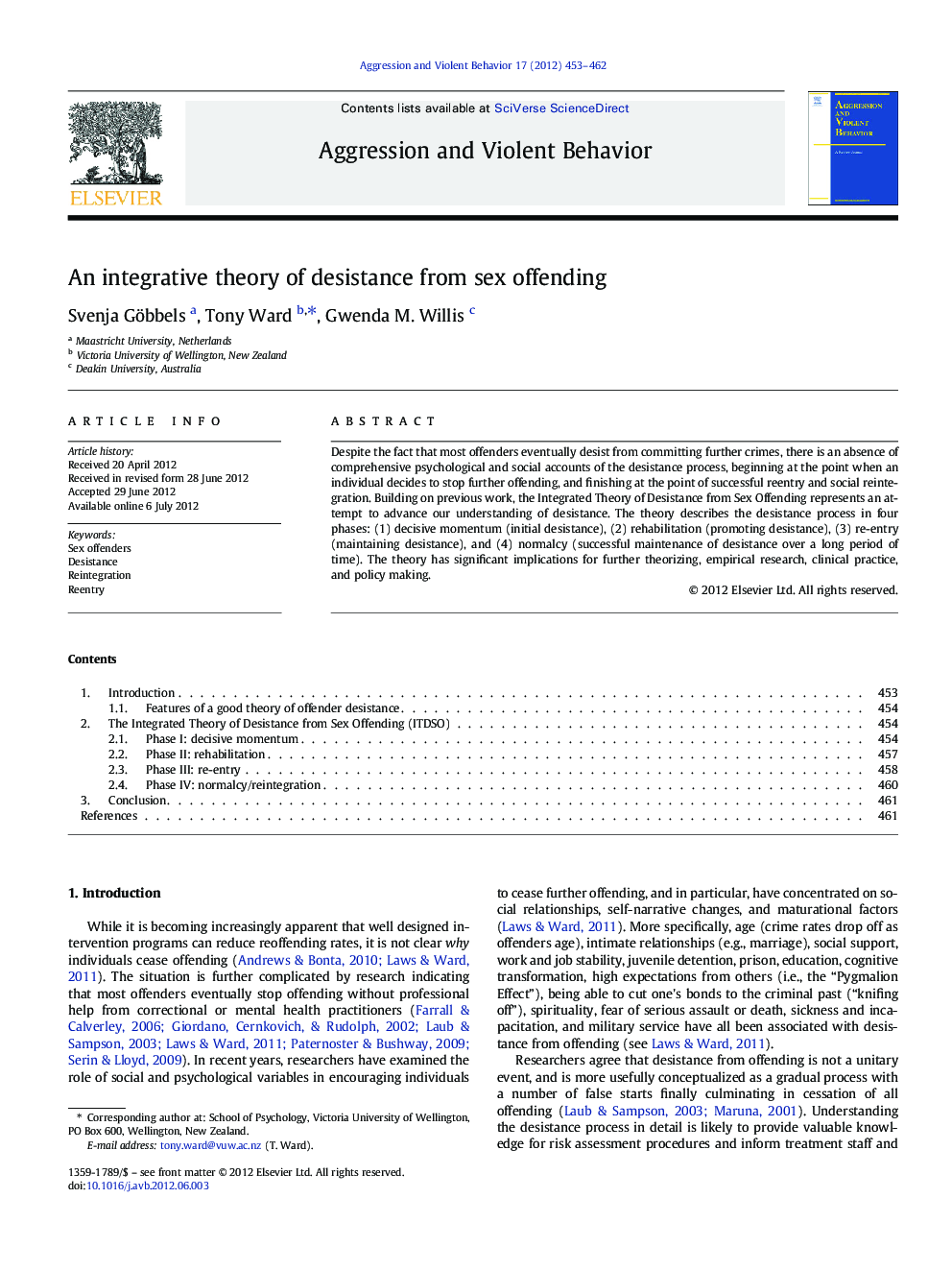| Article ID | Journal | Published Year | Pages | File Type |
|---|---|---|---|---|
| 94798 | Aggression and Violent Behavior | 2012 | 10 Pages |
Despite the fact that most offenders eventually desist from committing further crimes, there is an absence of comprehensive psychological and social accounts of the desistance process, beginning at the point when an individual decides to stop further offending, and finishing at the point of successful reentry and social reintegration. Building on previous work, the Integrated Theory of Desistance from Sex Offending represents an attempt to advance our understanding of desistance. The theory describes the desistance process in four phases: (1) decisive momentum (initial desistance), (2) rehabilitation (promoting desistance), (3) re-entry (maintaining desistance), and (4) normalcy (successful maintenance of desistance over a long period of time). The theory has significant implications for further theorizing, empirical research, clinical practice, and policy making.
► Presents comprehensive desistance framework. ► Provides analysis of the turning point phenomenon of desistance. ► Emphasizes the crucial role of social and psychological capital.
